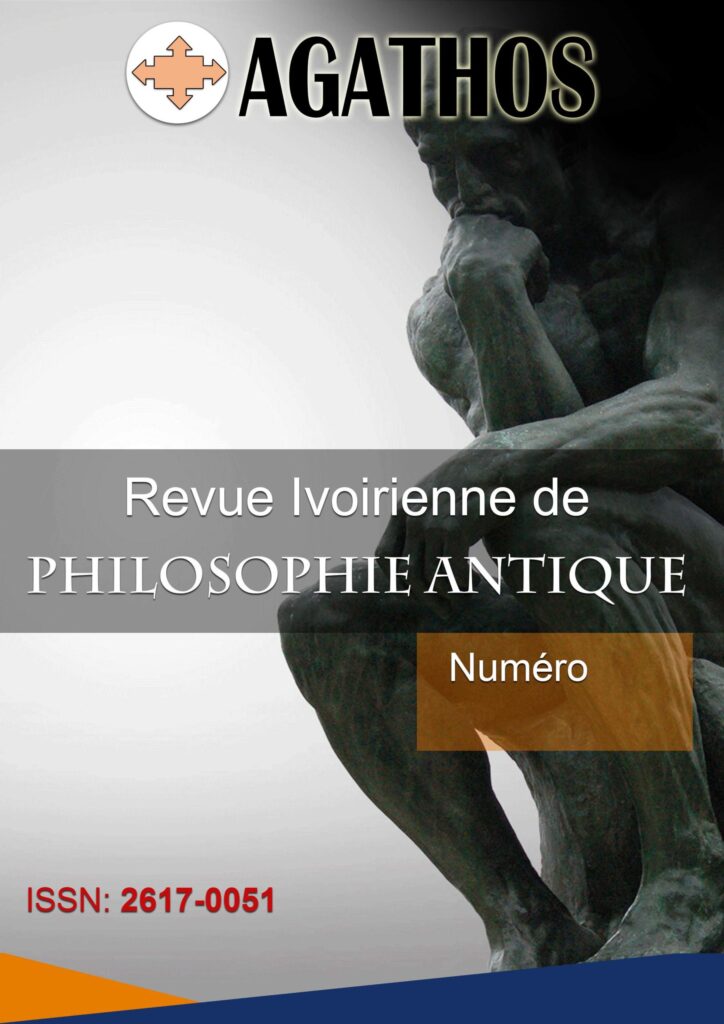
AGATHOS
ISSN-L : 2617-0051
Résumé
La philosophie platonicienne donne souvent à croire que Protagoras est un laudateur de la guerre. Deux approches sont au fondement de cette conception. La première établit un rapport de similitude entre le pensé protagoréen et la thèse héraclitéenne du combat et de la guerre. La seconde approche évoque le regret du sophiste face à la méconnaissance de l’art de la guerre par les humains. Pourtant, considérer Protagoras comme un adepte de la guerre apparaît comme une mésinterprétation de sa pensée. Car la maxime de l’homo mensura, la théorie des antilogies et les vertus créatrices d’amitié de Protagoras sont autant d’éléments qui montrent que ce sophiste est plutôt un penseur et un apologiste de la paix sociale.
Abstract
Platonic philosophy often suggests that Protagoras is a laudator of war. Two approaches are at the foundation of this conception. The first establishes a relationship of similarity between the Protagorean thought and the Heraclitean thesis of combat and war. The second approach evokes the sophist’s regret at the ignorance of the art of war by humans. Yet to consider Protagoras as a follower of war appears to be a misinterpretation of his thought; because the maxim of homo mensura, the theory of antilogies and the creators virtues of friendship of Protagoras are all elements which show that this sophist is rather a thinker and an apologist of social peace.
Mots-clés
Antilogie – Guerre – Homo mensura – Paix – Protagoras –Vertu

Auteur(s)
Kolotioloma Nicolas YÉO
Université Alassane Ouattara
nicolasyeo@yahoo.fr